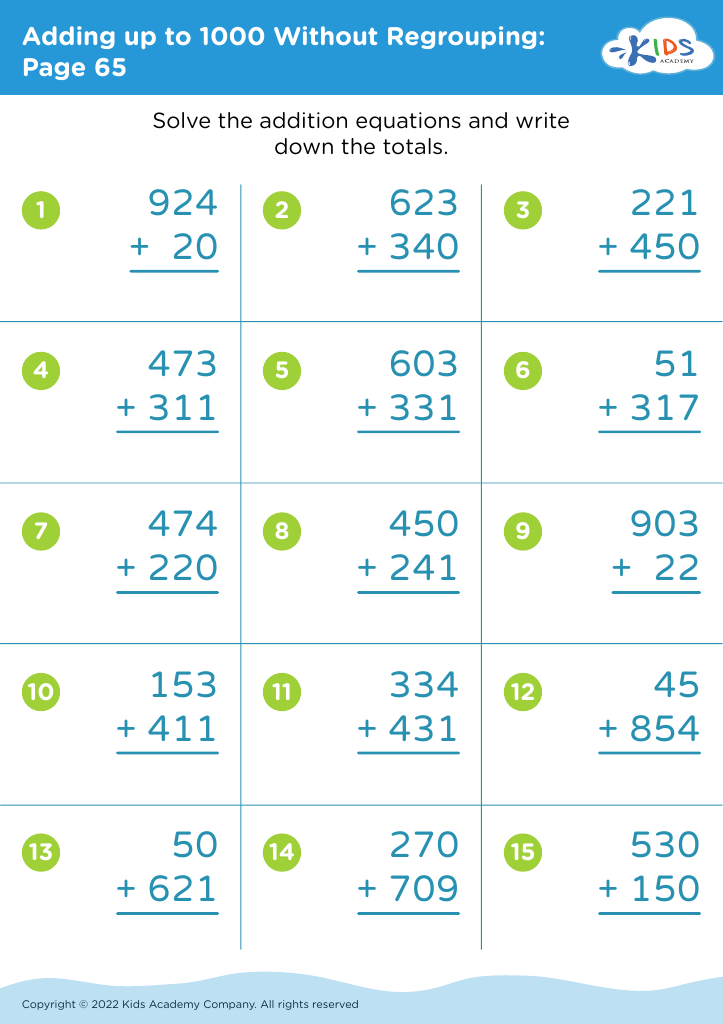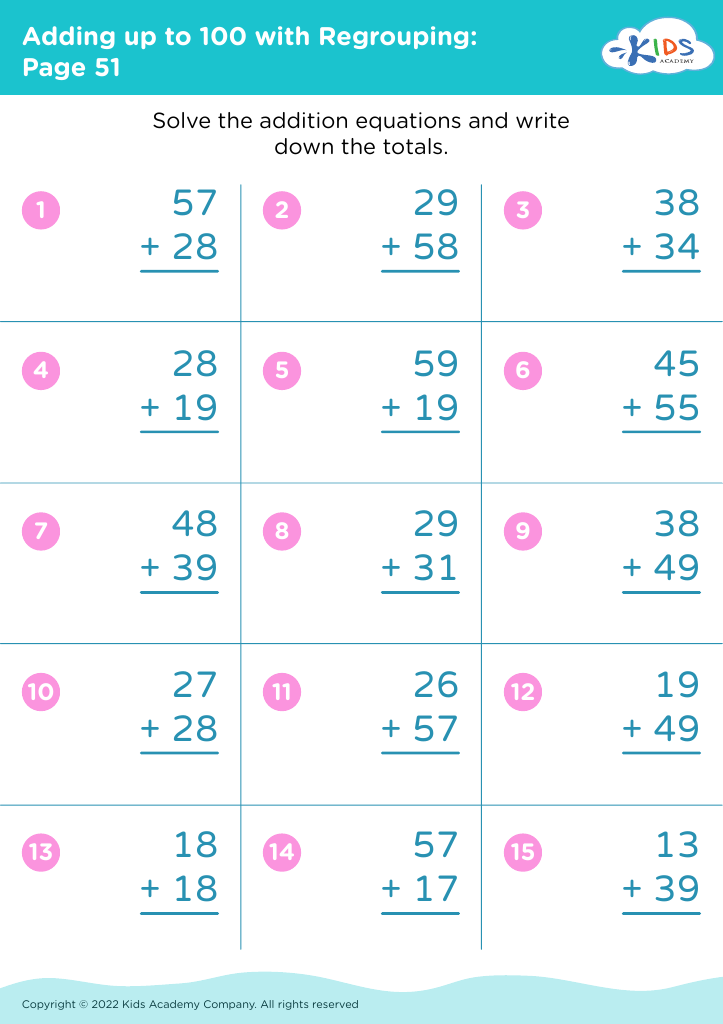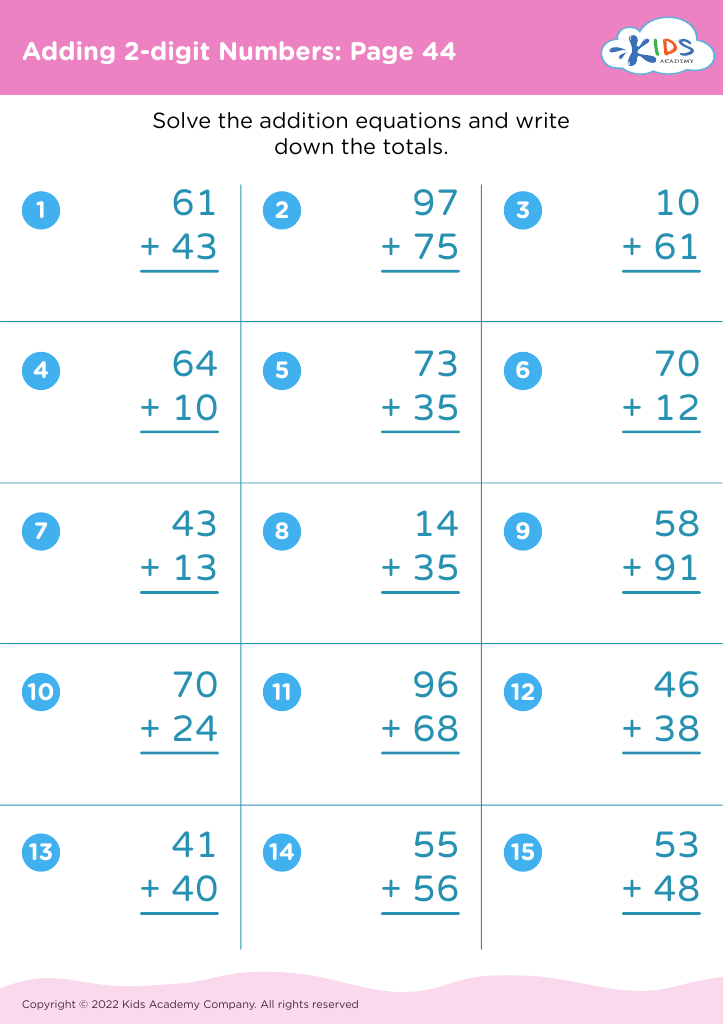Develop analytical thinking Addition Worksheets for Ages 6-7
3 filtered results
-
From - To
Introducing our "Develop Analytical Thinking Addition Worksheets for Ages 6-7"! These expertly designed worksheets combine fun and education to strengthen children's analytical and critical thinking skills. Perfect for young learners, each worksheet provides tasks that challenge kids to think logically and solve addition problems, giving them a head start in math fundamentals. Aligned with educational standards, our worksheets use engaging themes and interactive activities to keep kids motivated and eager to learn. Ideal for both classroom settings and at-home practice, these sheets ensure kids develop strong problem-solving abilities and a love for math. Download now to give your child a solid foundation in analytical thinking and addition skills.
Developing analytical thinking in children aged 6-7 is essential for their cognitive and problem-solving skills. At this age, children begin to process information more systematically, identify patterns, and make logical connections. Analytical thinking complements foundational skills like addition by helping children understand not just the 'how' but also the 'why' behind mathematical concepts.
For parents and teachers, fostering analytical thinking can be key to ensuring children grasp these ideas more deeply, building a strong foundation for future learning. Analytical thinking enables children to approach problems methodically, breaking them down into smaller, manageable parts, which can make learning addition practical and enjoyable. For instance, understanding why 2+3 equals 5, not just memorizing the fact, helps children transfer this knowledge to more complex mathematical problems later on.
Teachers can introduce activities and games that challenge students to think critically and reason through problems. Parents can reinforce these skills at home with everyday examples, turning routine tasks like grocery shopping or cooking into fun math challenges. Investing time and effort early on to develop these analytical and computational competencies prepares children for academic success and cultivates a lifelong love of learning.




















